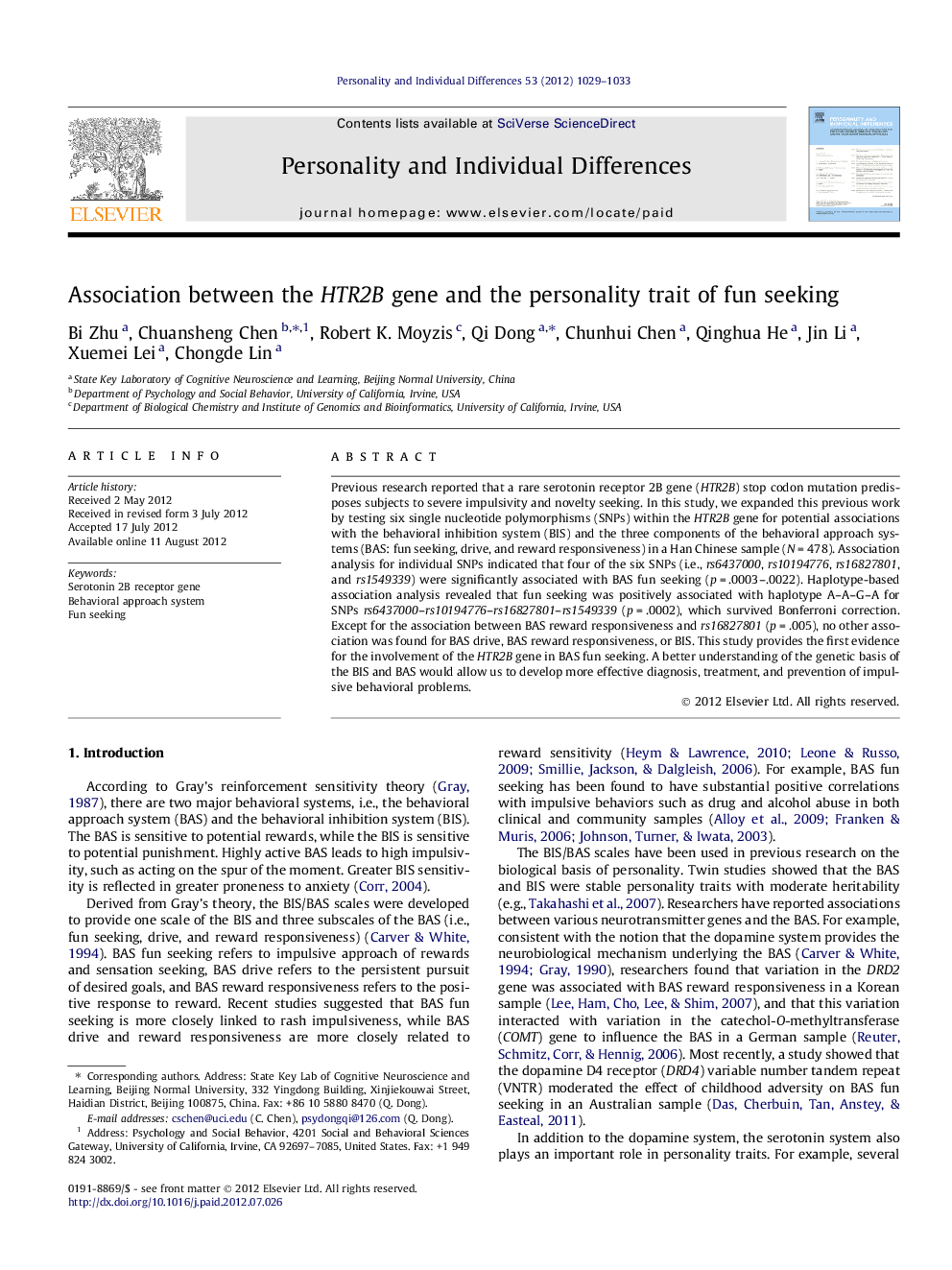| Article ID | Journal | Published Year | Pages | File Type |
|---|---|---|---|---|
| 891329 | Personality and Individual Differences | 2012 | 5 Pages |
Previous research reported that a rare serotonin receptor 2B gene (HTR2B) stop codon mutation predisposes subjects to severe impulsivity and novelty seeking. In this study, we expanded this previous work by testing six single nucleotide polymorphisms (SNPs) within the HTR2B gene for potential associations with the behavioral inhibition system (BIS) and the three components of the behavioral approach systems (BAS: fun seeking, drive, and reward responsiveness) in a Han Chinese sample (N = 478). Association analysis for individual SNPs indicated that four of the six SNPs (i.e., rs6437000, rs10194776, rs16827801, and rs1549339) were significantly associated with BAS fun seeking (p = .0003–.0022). Haplotype-based association analysis revealed that fun seeking was positively associated with haplotype A–A–G–A for SNPs rs6437000–rs10194776–rs16827801–rs1549339 (p = .0002), which survived Bonferroni correction. Except for the association between BAS reward responsiveness and rs16827801 (p = .005), no other association was found for BAS drive, BAS reward responsiveness, or BIS. This study provides the first evidence for the involvement of the HTR2B gene in BAS fun seeking. A better understanding of the genetic basis of the BIS and BAS would allow us to develop more effective diagnosis, treatment, and prevention of impulsive behavioral problems.
► We genotyped six SNPs on the HTR2B gene in a Han Chinese sample. ► We examined their associations with the behavioral approach and inhibition systems. ► This study suggested a critical role of the HTR2B gene in BAS fun seeking. ► Four of the six SNPs on HTR2B were significantly associated with BAS fun seeking. ► A major haplotype of HTR2B was positively associated with BAS fun seeking.
